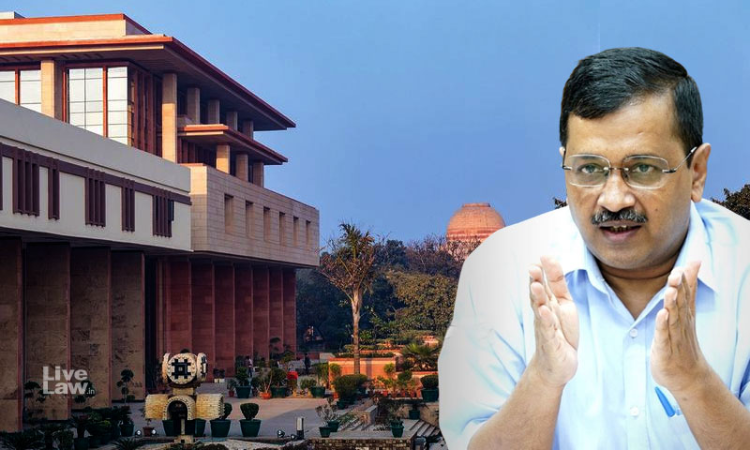
The Delhi High Court refused to grant Chief Minister Arvind Kejriwal interim protection in the money laundering case associated with the alleged liquor policy. Justices Suresh Kumar Kait and Manoj Jain of the division bench remarked, “Having heard both sides, we are not inclined to pass any order at this stage.
The bench permitted the Enforcement Directorate (ED) to present a response to Arvind Kejriwal’s plea for interim relief, a component of his petition challenging the summons issued by the central agency in the money laundering case. Senior Advocate Abhishek Manu Singhvi stood for Kejriwal, while ASG SV Raju and special counsel Zoheb Hossain represented the ED. Earlier, the court had sought the ED’s opinion on the maintainability of Kejriwal’s petition against the summons.
Also Read Tensions Escalate: Allegations of Financial Crippling by PM Against Congress
During the proceedings, Kejriwal’s legal representative criticized the Enforcement Directorate’s actions as politically motivated, labeling them as “vague, frivolous, and motivated.” However, Raju, representing the ED, opposed granting interim relief to Kejriwal, asserting that he must abide by the law like any other individual, regardless of his position as Chief Minister. In response to the court’s inquiry, Raju clarified that Kejriwal had been summoned in his personal capacity and not as Chief Minister or Aam Aadmi Party Chief. Raju emphasized the principle that the law applies equally to all individuals.
This information details legal proceedings involving Arvind Kejriwal and the Enforcement Directorate (ED) at Delhi’s Rouse Avenue Courts. The ED has lodged two criminal complaints against Kejriwal, accusing him of not adhering to summons. Kejriwal has received a total of nine summons thus far. Recently, he appeared before the Additional Chief Metropolitan Magistrate (ACMM) court and was granted bail upon submitting a bail bond of Rs 15,000 and a surety of a similar amount. The case is scheduled for further hearing on April 1. The ED’s complaints allege that Kejriwal failed to comply with the issued summons.
The situation you described seems to involve a series of legal and political developments concerning Arvind Kejriwal, the Chief Minister of Delhi, and other leaders from the Aam Aadmi Party (AAP).
- Summons Skipped: Kejriwal has allegedly skipped summons from the Enforcement Directorate (ED), claiming they are illegal. However, he has expressed willingness to be questioned via video conferencing after March 12.
- Arrest of AAP Leaders: Manish Sisodia and Sanjay Singh, prominent leaders of the Aam Aadmi Party, have been arrested in connection with a money laundering case and are currently in judicial custody.
- Allegations by ED: The ED has alleged that certain policies, such as the excise policy, were implemented as part of a conspiracy to benefit specific private companies by providing them with a 12% profit margin. This alleged conspiracy was not reflected in the minutes of meetings of the Group of Ministers (GoM).
- Coordination Allegations: The ED has further claimed that there was coordination between individuals, including Vijay Nair, and the South Group to provide extraordinary profit margins to wholesalers. It’s suggested that Nair was acting on behalf of Chief Minister Arvind Kejriwal and Manish Sisodia, according to the agency.
These allegations and developments indicate a complex legal and political situation surrounding the AAP leadership and their alleged involvement in a conspiracy related to policy implementation and financial irregularities.
